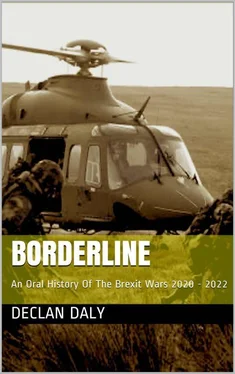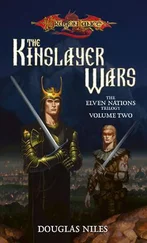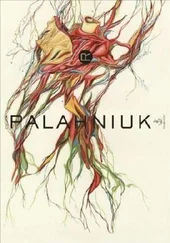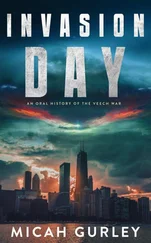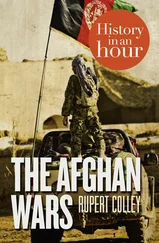What became clear very quickly, however, was that the IRA intended to make use of this newfound largesse and, presumably working on the lines that nothing succeeds like success, they would need to carry out some operations in order to recruit new blood into the organisation. It's important to point out at this stage that the IRA did not exist in the same way as it had throughout the 70s, 80s,90s and into the 2000s. It was very much an organisation that existed on paper there were some command elements left, some control elements left, but it was an organisation that did not have foot soldiers anymore. In that regard it could not be expected to carry out any campaign, but it needed to do something in order to draw those foot soldiers in from a community that realistically wanted nothing to do with another campaign of violence. Throughout the whole war as we’ve seen it, no part of the community in Northern Ireland actually wanted another conflict; all of it was driven and supported from outside.
As Customs and Border vacancies began to be filled in the docks and in the airports in Belfast, from where much of the trade would make its way between Ireland and Britain, the IRA found their first targets – customs officials, border officials, these people were hit up quite early on. They were obvious targets, of course, the PSNI had tried to protect them but you can't be everywhere at once. The IRA attempt here was obviously too encourage a new revolution, as they saw it, but that was for external consumption – really they needed to assert themselves in the border area where they were already being squeezed by the PSNI and other armed groups. They saw early on that – something that everyone realised as time went on – that while the border between the EU and Britain might exist in the sea, in reality anything going through that border was always going to have to travel overland via the existing border between Ireland and Northern Ireland. Papers might be exchanged at ports, but for everything else, the border was at the juncture of the UK and the EU on the ground. That was critical – that was where the different legal and political systems actually rubbed up against each other and the resulting friction was there to be exploited by those who would seek to ‘fundraise’ for their groups by smuggling etc and by those who would seek to put their arms and people out of reach in another jurisdiction.
Controlling the area around that border was something that the IRA had to do in order to exist, never mind run their campaign. And it was always something that was going to be contested, not only by us, but also by the other players who emerged into the sectarian violence the terrorist milieu that then was spawned once again in Northern Ireland. This was simply because, the group that controlled access to the land border, de facto controlled the illegal movement of people, arms and the off books trade between the UK and the EU. The emerging groups challenged each other as a result for access, to deny the others access and crucially to recruit people as footsoldiers.
This issue of recruitment was a critical one for the survival of each group. Due to the means of their genesis, they did not have the ability to continue growing or replacing losses organically like might have happened in the old days. There was a finite number of people from all communities who were willing to involve themselves in violence at any given time; as I’ve already said, the community support wasn’t there. The result, especially for the Republican sides, the Unionist side quickly became more homogenous, was that whoever was winning gained the most recruits but there was never more than about one thousand total throughout the whole war from either of the two main traditions in the North.
What also became clear very quickly and for a number of reasons was that Britain was not going to put a large force of troops back into Northern Ireland. It was very, very, much realised that to kind of relaunch an Operation Banner 2 for example, would play exactly into the arms of the IRA and other Republican movements and would be the best recruitment poster they could hope for. In addition, one only has to look at the Tory party polls at the time, and in the lead up to 2020, where it was quite clear that the majority of the membership of the Tory party would sacrifice Northern Ireland as a part of the UK in a heartbeat, in order to protect their vision of Brexit. This, more so than perhaps any other factor, this laid the ground for what happened thereafter as it gave the groups on each side time to get through their labour pains and become established and organised.
As the PSNI struggled to contain this new and emerging IRA threat, obviously other threats began to appear. The resurgent Unionist groups, and also other Republican elements began to emerge suddenly being very highly funded and very highly resourced in terms of modern weaponry and equipment. The PSNI was being backfilled not by troops in the main, obviously specialist EOD units and Special Forces (SF) and Intelligence(Int) elements etc were in position in Northern Ireland, but generally speaking they were backfilled by ordinary police from elsewhere in the UK, from Britain itself. These police were not only unhappy to be there themselves; they also became the first targets for the resurgent Republican groups especially the factions in Belfast and the other urban areas away from the border.
It became clear quickly that the IRA was still attempting to utilize some of its old ways of operating, in that it would use cross border tactics, that some of the weaponry and personnel it was attempting to draw upon were to be based in the Republic as opposed to Northern Ireland. This is because basically, the geographical position of the remaining command structure that existed at the time, ex-Provisionals were mostly living along the border area and in some cases controlling the criminal enterprises along that border area. The upshot of this is the view amongst Republicans that the Republic might be a safe area,mistaken as it was, and this led to control of the border being heavily contested amongst Republican groups who sought to make use of the jurisdictional differences between not only Ireland and Northern Ireland but between the EU and the UK. This basically became the first phase of the war.
From our perspective, the Government and the Defence Forces were absolutely not willing to allow terrorists forces to operate from our territory and utilising such assets as we did have on hand at that time – and it must be remembered that the Defence Forces was already in a state of crisis in terms of its personnel issues – the military contested control of the border and in large part succeeded quite quickly. The speed at which we succeeded, notwithstanding some of the darker elements of the Black Winter, was a major success which is sometimes overlooked now given the events which followed. Did we succumb to hubris in the aftermath of what appeared to be success? If we did, we did not have long to be humbled.
Our policy at the time and one which I enforced by dealing directly with the Chief of Staff to a greater degree than previous ministers was based on one pretty essential fact that must be grasped. Recruitment on its own was not solving the ongoing shedding of personnel within the Defence Forces and that retention of experience also had to be one of the key goals. The whole personnel issue was a major point of mine, which we addressed in a number of different ways. One of these of course, perhaps most famously, was the massive re-introduction of reserve units more in the model of the FCA rather than the newer Army Reserve template. In addition, we brought in an active reserve into both the Air Corps and into the Naval Service, to take advantage of the amount of people who were saying they wanted to still contribute. These were ex-personnel who wanted to still contribute, but who felt that a full-time career back in the Defence forces was still not going to work for them.
Читать дальше
